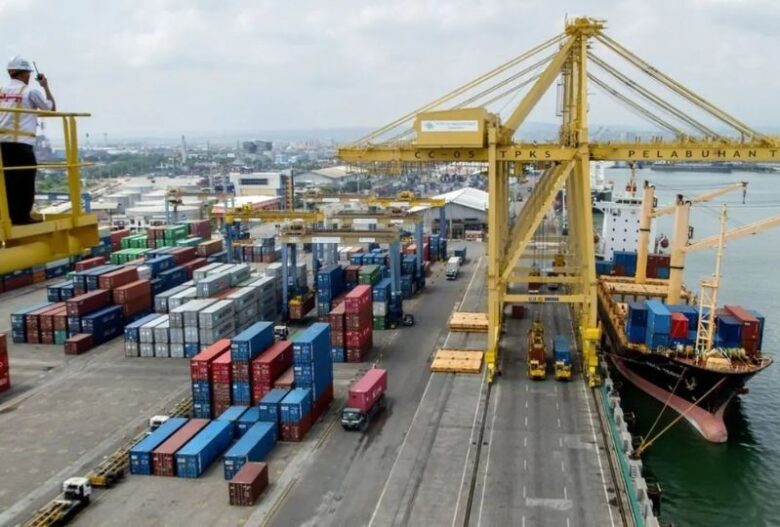The NBS report stated that imports declined by 10.7 percent QoQ to N12.47 trillion in Q2’24 from N13.97 trillion in the previous quarter.
Meanwhile, exports slightly increased by 1.57 percent, rising to N19.4 trillion in Q2’24 from N19.1 trillion in Q1’24.
The report stated: “Nigeria’s total merchandise trade amounted to N31.89 trillion in Q2’24, representing a decrease of 3.76 percent from the previous quarter, but a significant rise of 150.39 percent compared to the same period in 2023.”
In Q2’24, exports accounted for 60.89 percent of total trade, valued at N19.42 trillion, reflecting a marginal growth of 1.31 percent from Q1’24 (N19.17 trillion) and a substantial 201.76 percent increase compared to Q2 2023 (N6.44 trillion).
On exports, the NBS noted, “Nigeria’s export trade in Q2’24 was still heavily dominated by crude oil, which was valued at N14.56 trillion, representing 74.98 percent of total exports. Non-crude oil exports were valued at N4.86 trillion, accounting for 25 percent of total exports, with non-oil products contributing N1.94 trillion, or 10 percent of total exports.”
Regarding imports, the NBS highlighted: “Total imports accounted for 39.1 percent of trade in Q2’24, with a value of N12.47 trillion. This marks a 10.71 percent decline from Q1’24 (N13.97 trillion) but an increase of 97.93 percent compared to Q2 2023 (N6.3 trillion).”
The merchandise trade balance remained positive in Q2’24, with a surplus of N6.95 trillion, reflecting a 33.63 percent increase over the previous quarter.
As exports rose, imports saw a marked decline in Q2 2024. Imports totaled N12.47 trillion, representing 39.11% of Nigeria’s total trade, a 10.71% drop from N13.97 trillion in Q1 2024, though still showing a 97.93% rise from N6.30 trillion in Q2 2023.
The reduction in imports contributed significantly to the growing trade surplus, underscoring Nigeria’s strengthening export sector relative to its import demand.
China remained Nigeria’s largest goods supplier, with imports valued at N3.03 trillion, making up 24.29% of total imports.
Belgium followed with N1.79 trillion (14.35%), while India contributed N1.06 trillion (8.49%). The United States ranked fourth with N917.84 billion (7.36%), and the Netherlands rounded out the top five with N585.30 billion (4.69%).
These countries primarily supplied Nigeria with mineral fuels, machinery, and transport equipment.
In Q2 2024, most of Nigeria’s trade was conducted through maritime transport, with sea-based exports amounting to N19.25 trillion, representing 99.14% of total exports. Air transport contributed N73.72 billion (0.38%), road transport N30.72 billion (0.16%), and other methods, including pipelines, N63.28 billion (0.33%).
Similarly, imports were largely transported by sea, accounting for N11.84 trillion (94.94%). Air transport made up N531.38 billion (4.66%) of imports, while road transport accounted for N49.97 billion (0.40%).
The report highlighted Nigeria’s heavy reliance on maritime transport for facilitating international trade, emphasizing the key role of the country’s seaports in the economy.









Got a Question?
Find us on Socials or Contact us and we’ll get back to you as soon as possible.